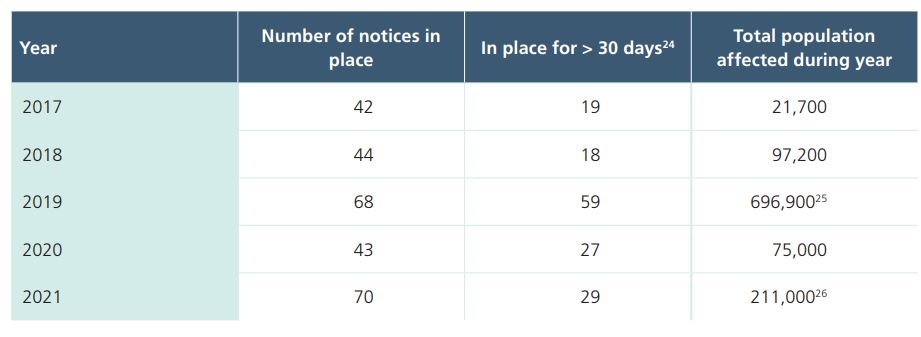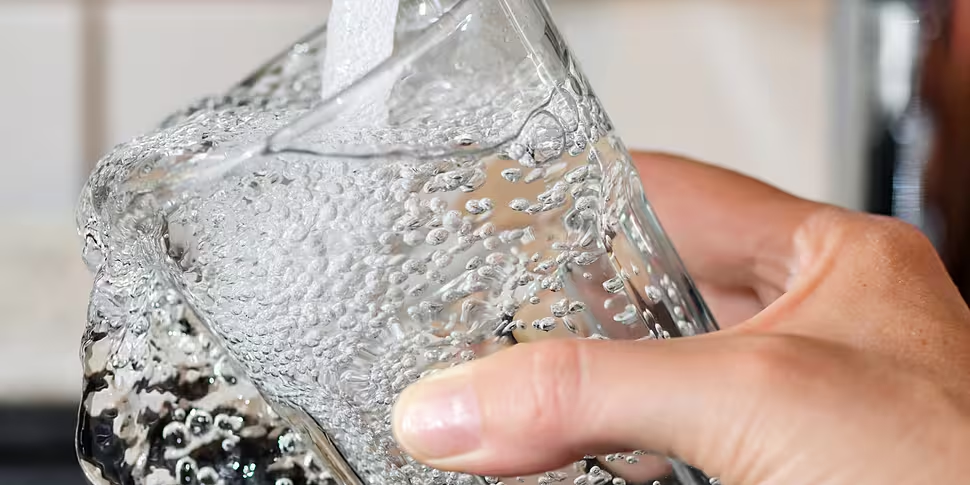Two significant incidents put the health of around 885,000 people at risk last year, the Environmental Protection Agency (EPA) has warned.
Its latest Drinking Water Quality in Public Supplies report said water quality is high, with over 99.7% of samples compliant.
However it said increased vigilance is needed by Irish Water and local authorities to protect public health.
The report said two incidents at the Gorey and Ballymore Eustace water treatment plants put people's health at risk.
 Tap water being poured from a tap in to a glass
Tap water being poured from a tap in to a glassIt said illness and hospitalisations happened in the case of the Gorey incident.
"These highlighted significant failings in oversight and management by Irish Water and local authorities," the EPA said.
It instructed Irish Water to implement a number of actions at all supplies to prevent the reoccurrence of similar issues.
It said: "As a result of these actions, more drinking water quality issues were detected and reported".
Boil water notices
The number of boil water notices increased significantly in the last quarter of 2021.
The total number of people affected by the notices last year was around 211,000.
EPA Director Dr Tom Ryan said: "The serious incidents at Gorey and Ballymore Eustace water treatment plants last year, which resulted in unsafe water being released for consumption, have highlighted Irish Water’s fundamental obligation to ensure our public water supplies are properly operated, and managed, to protect public health.
"Increased vigilance is needed by Irish Water and local authorities in their oversight and management of plant operations to ensure incidents are dealt with appropriately and in a timely manner."
 Boil water notices from 2017 to 2021. Source: EPA
Boil water notices from 2017 to 2021. Source: EPADr Ryan added that boil water notices are affecting "an increasing number of consumers".
He said: "While we recognise the challenges these present to individuals and communities, they are necessary to protect public health.
"High incidences of boil water notices will remain with us until Irish Water improves the resilience of drinking water plants."
The EPA also noted that progress to remove lead from drinking water networks "is too slow," with the need for stronger leadership at national level.









